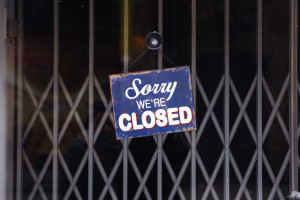Police could force bars to install surveillance cameras – or be shut down

By Adam Tobias | Wisconsin Reporter
CHIPPEWA FALLS, Wis. — Bernie LaVelle doesn’t want to infringe on his customers’ privacy by installing surveillance cameras at his Weekend at Bernie’s bar, but his local government may not give him a choice.
The Chippewa Falls Police Department is pushing for an ordinance requiring all tavern owners in the city to pay for and set up surveillance cameras at their establishments because some law enforcement officials think the devices could help solve more crimes.
NO CHOICE: An ordinance being proposed in Chippewa Falls would force tavern owners to install surveillance cameras and share any footage with police — or they could be shut down.
But if a bar owner were to violate the proposed law, which would allow police to obtain video footage at any time, they could lose their liquor license and be shut down.
LaVelle admitted to Wisconsin Reporter he’d be forced to comply because his private business is his sole means of income.
“You don’t have an option,” LaVelle said. “The government is controlling everything now and every aspect of our lives, and I just don’t like the way they are going with everything. They just keep jamming (expletive deleted) down our throats.”
The ordinance, which was presented to the Chippewa Falls Public Safety Committee earlier this week, has been forwarded to the city attorney’s office for review, according to Mike Hanke, chairman of the safety panel.
The proposed law was requested by the Police Department with the goal of helping officers better identify criminals and collect evidence, Hanke said.
Police Chief Wendy Stelter and Sgt. Dave BeBeau, who spoke in favor of the measure at the Public Safety Committee meeting, did not return several calls and emails from Wisconsin Reporter seeking comment.
Although Hanke agrees that surveillance cameras can assist law enforcement, he said he has reservations about the ordinance because he’s not entirely sure it’s legal, especially the provision that gives police full access to the private recordings.
“If we buy cameras and put them in our businesses, and you think you have a right to all that just because you pass an ordinance that says if you don’t, you lose your license, that averts the whole idea of privacy,” Pete Madland, executive director of the Tavern League of Wisconsin, told Wisconsin Reporter.
If the measure is approved by the Chippewa Falls Common Council, Madland said expects his organization’s board of directors to challenge it in court.
“It certainly would be up for discussion,” Madland said. “If we felt that this was setting a precedent, yeah, we definitely would do that.”
Madland said he is not aware of any similar laws passed by Wisconsin municipalities.
John Bodnovich, executive director of American Beverage Licensees, also described the situation as rare, even on a national level.
“Requirements like this are not commonplace precisely because of the unfair financial burden they would place on law-abiding local small businesses,” Bodnovich said in an email.
Hanke also said he is troubled the ordinance does not include all businesses in the city and singles out a select group. If cameras are really needed, Hanke said it shouldn’t be the responsibility of private establishments.
“My theory is, if you feel that certain areas of the city need to be monitored, the city needs to put their own cameras up and have the city pay for it and not make private business pay for it,” Hanke said.
Madland also said the city should focus on places that have had habitual problems.
“To put the financial burden on a tavern that has never had an incident is out of line … It’s like the old adage, whoever has the hammer, everything looks like a nail, and that’s what it looks like here,” Madland said.
The ordinance calls for bars to have electric cameras monitoring in all sections open to the public, including entrances, exits and cash register. Cameras must be recording during business hours, and all footage must be kept for at least 21 days.
A bar owner who disobeys any section of the law is subject to a fine of no more than $500 and can have their license revoked or not renewed.
The city also has a similar ordinance that applies to grocery and liquor stores.
Contact Adam Tobias at atobias@watchdog.org or follow him on Twitter @Scoop_Tobias







